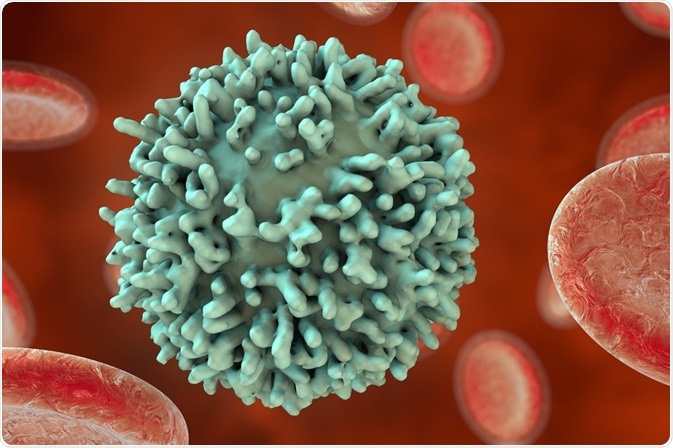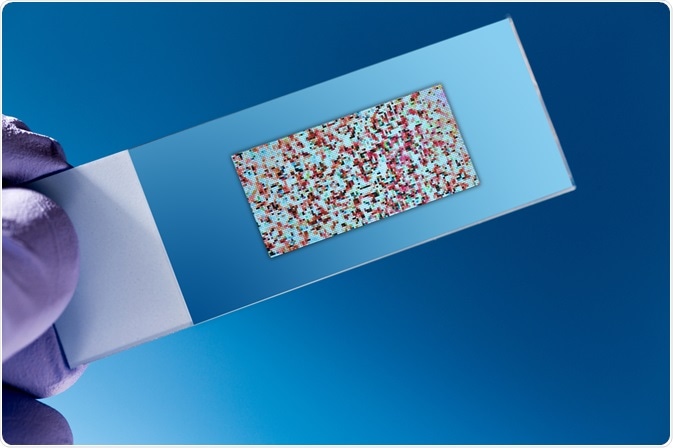Biological organisms are incredibly complex machines made up of innumerable parts working in complementary ways. Understanding the complex, intricate interactions between tissues and cells is, therefore, key to a holistic understanding of the organism as a whole, and over the centuries that have encompassed the science of biology many advances in scientific knowledge have been made.

Image Credit: Kateryna Kon/Shutterstock.com
One recent area of research that has been gaining prominence in the understanding of the complex inter-and-intracellular dynamics of biological organisms is the science of secretomics, a type of proteomics concerned with the study of the secretome.
Overview of the Secretome
The secretome as a term was coined in 2004 by Tjalsma et al. It denotes all the factors secreted by the cell, along with the constituents of the secretory pathway. The term was revised in 2010 to include specifically the proteins which are secreted into the extracellular space.
Related terms include the matrisome (the subset which includes extracellular matrix proteins and associated proteins) receptome (membrane receptors) and the adhesome (proteins involved in cell adhesion.)
Cells such as endocrines and B-lymphocytes are two classes of cells that are specifically involved in the secretion of proteins. The liver and bone marrow are major secretory organs in the human body.
In humans, secreted proteins account for between 13 and 20% of the entire proteome (the entire set of proteins expressed in an organism, cell, tissue, or genome at any given time.) Included in the secretome are such things as growth factors, coagulation factors, adhesion molecules, cytokines, proteases, and chemokines.
A significant number (36%) of the 19670-human protein-coding genes transcribe secretory proteins. Other proteins coded for by these genes are membrane-spanning, intracellular (the main type – 12631 genes encode for these) and 9% have at least one secreted protein product as well as membrane-spanning products. The secretome plays a major role in cell migration, signaling, and communication.
Methodologies to Study the Secretome
Several methods are used by researchers to study the secretome. These include:

Image Credit: science photo/Shutterstock.com
Each method has its distinct advantages and disadvantages for studying and identifying secretory proteins. A knowledge of them is advantageous for any study using secretomics.
The Importance of Secretomics in Medical Research
The growing body of research on the secretome is proving more and more important to the field of modern medical research. Many medically important secreted proteins include coagulation factors, cytokines, and growth factors and they play a myriad of physiological and pathological roles within the body.
An understanding of the secretory pathways confers knowledge of how these secretory proteins play a role in the healthy biological processes of an individual.
All cells secrete proteins to varying degrees. The study and analysis of these proteins are providing valuable sources for new drugs and therapeutics. Not only this, but a large percentage of clinical blood diagnostic tests are directed at secretory proteins.
Medically important secretory proteins include:
- Albumin - important in the exchange of water between the plasma and the interstitial compartment due to its role in regulating the blood’s colloid osmotic pressure
- Transferrin – Iron-binding blood plasma glycoproteins which are important for the study of disorders involving levels of iron such as hemochromatosis and anemia.
- Defensins – A family of potent antibiotics made within the body by macrophages and neutrophils which play an important role in the body’s defense against invading microbes.
In Conclusion
The secretome is still poorly understood and represents a very recent area of research in the study of intercellular pathways in the body. Secretory proteins play a role which is becoming more apparent to medical scientists as the field of secretomics evolves.
Knowledge of how the secretome functions and which pathways are specifically involved is therefore of paramount importance and will no doubt contribute to the ongoing development of novel drugs and therapeutics.
Further Reading
Last Updated: May 7, 2020